
Supporting Coffee Producers’ Financial Independence
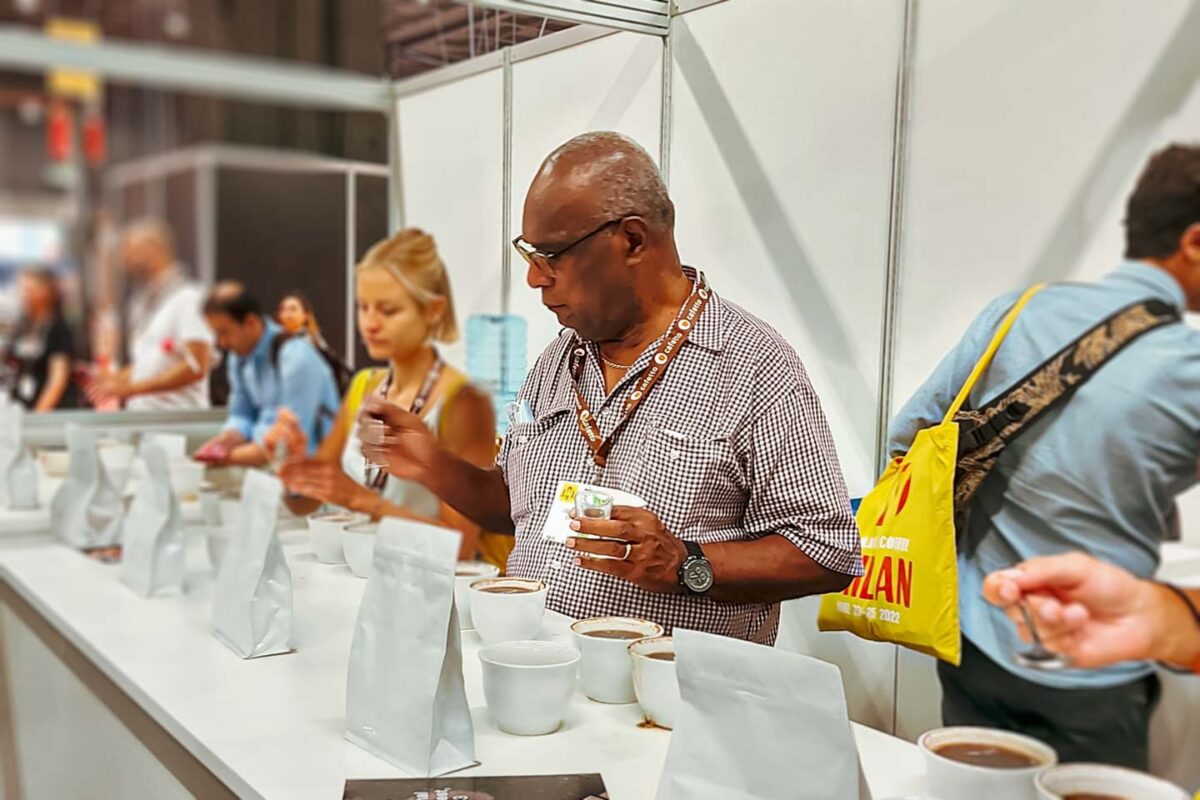
Alpha Coffee sources green coffee from 400 coffee farmers in various regions across Papua New Guinea, selling it directly to roasters in Australia and New Zealand. The company was founded by Redcoco Elijah Harro, a former builder. He established Alpha Coffee out of a sense of concern that his country’s coffee industry is going downhill because of cheap market prices forcing a labor shortage.
Elijah is particularly invested in direct marketing because he wants to make sure that coffee from Papua New Guinea is sold as Papua New Guinean coffee, and to bring more profit margins to small-scale farmers. We spoke to Elijah to find out more about his vision.
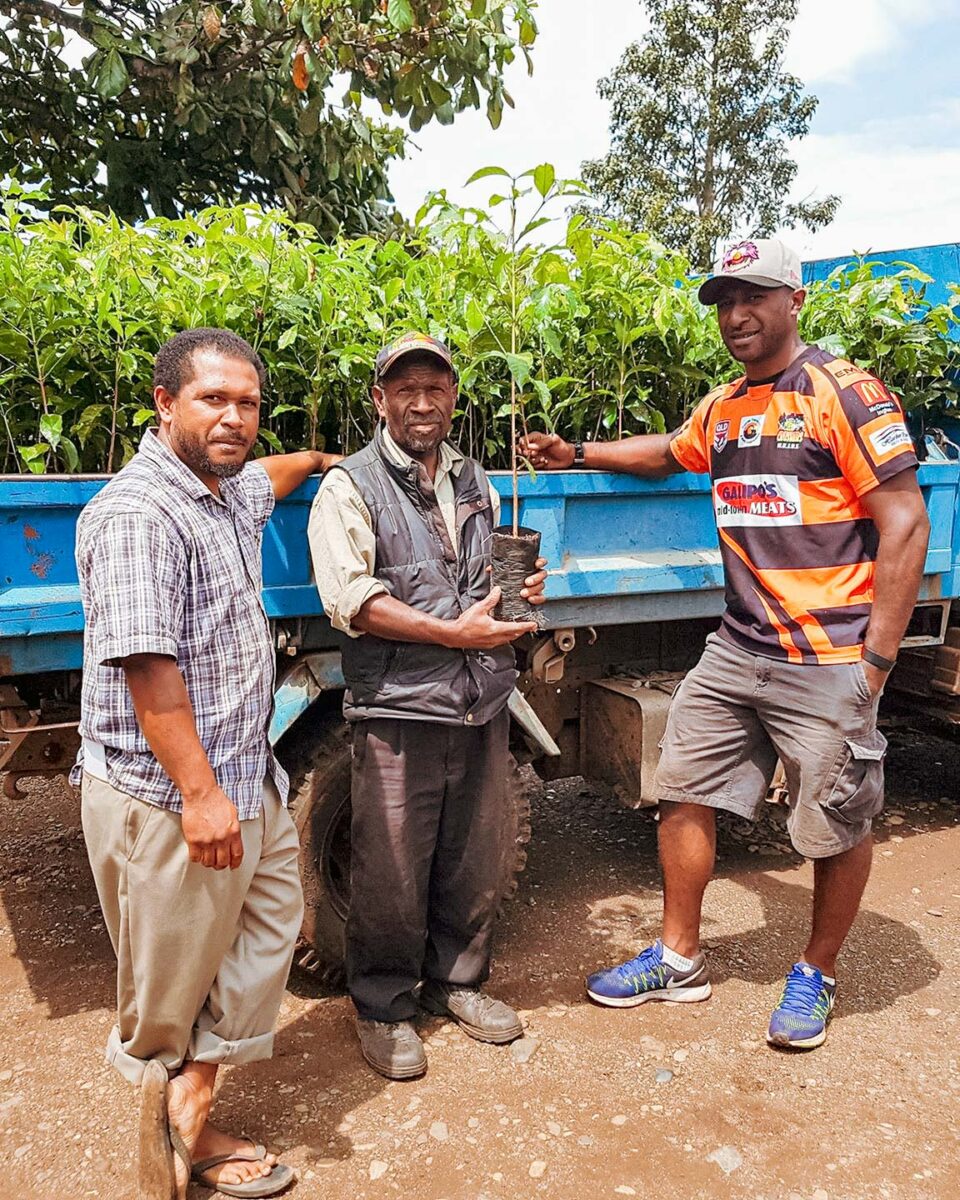
Unity is key
In June 2022, Elijah participated in the World of Coffee, an international trade show held in Milan, Italy with the assistance of the UK Aid and ITC . He was there to bring himself up to speed with trends in the specialty coffee market. Now, he has a project in the works. He is working to set up an association aimed at expanding and promoting specialty coffee production in Papua New Guinea.
One of its main initiatives, Elijah says, will be to provide producers with opportunities to learn about specialty coffee. For instance, he plans to provide training for qualifications. A goal is to increase the number of Q graders or coffee graders in general in Papua New Guinea, where there are only a few people with the certification. As soon as preparations are in place, he will start asking other small-holders to take part, too.
“The only way to increase specialty coffee production and improve the quality is to do the basics as best we can,” Elijah says. “That means being thorough with each step of farm management, be it proper pruning, shade control or weeding, as well as picking only ripe cherries, pulping them the same day they are picked and moving them into the fermentation and drying process. We plan to convey the importance of the basics to producers through these educational programs.”
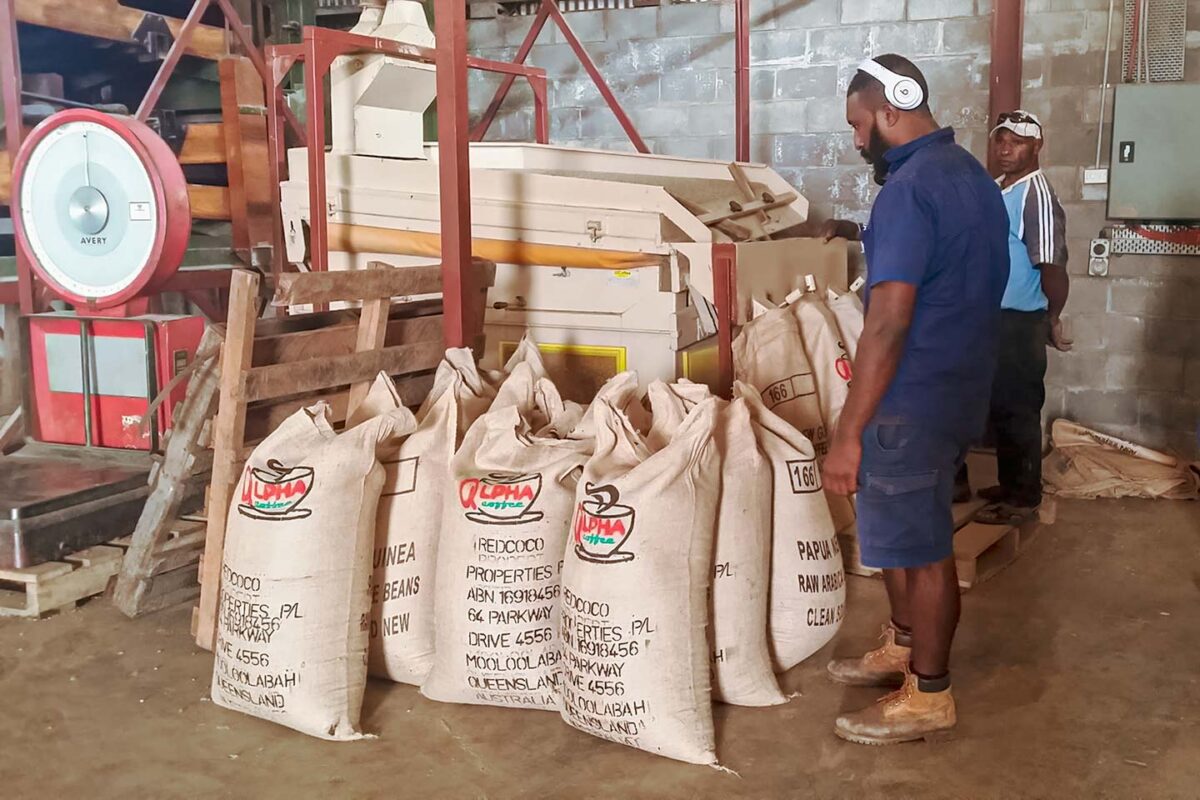
Papua New Guinea isn’t necessarily known as a high-quality coffee origin. Some, but not many, farmers export their coffee through major green coffee traders. These select few farmers get to sell their products under the name of their own farms to clients in the United States and Germany. But most others are not so fortunate, and Elijah wants to change that.
“I want to cultivate a brand behind Papua New Guinean coffee to shore up the industry as a whole. I believe our coffee has that potential. This country has unique micro-climates and soil conditions. So our coffee has some distinct character and appeal that’s unique and cannot be found in African or Latin American coffee. That’s especially the case with the Aiyura, Okapa, Siane, and Obura areas, where coffee beans are bigger and have unique cup profiles.
Part of the reason we are trying to organize is strategic. Papua New Guinea is a far-flung island in the Pacific. So transport costs can be expensive when exporting to consuming countries. That definitely puts us at a disadvantage. Even if small-scale producers try to transport micro-lots themselves, the price will discourage buyers. That’s why we need to unite and work closely together.”

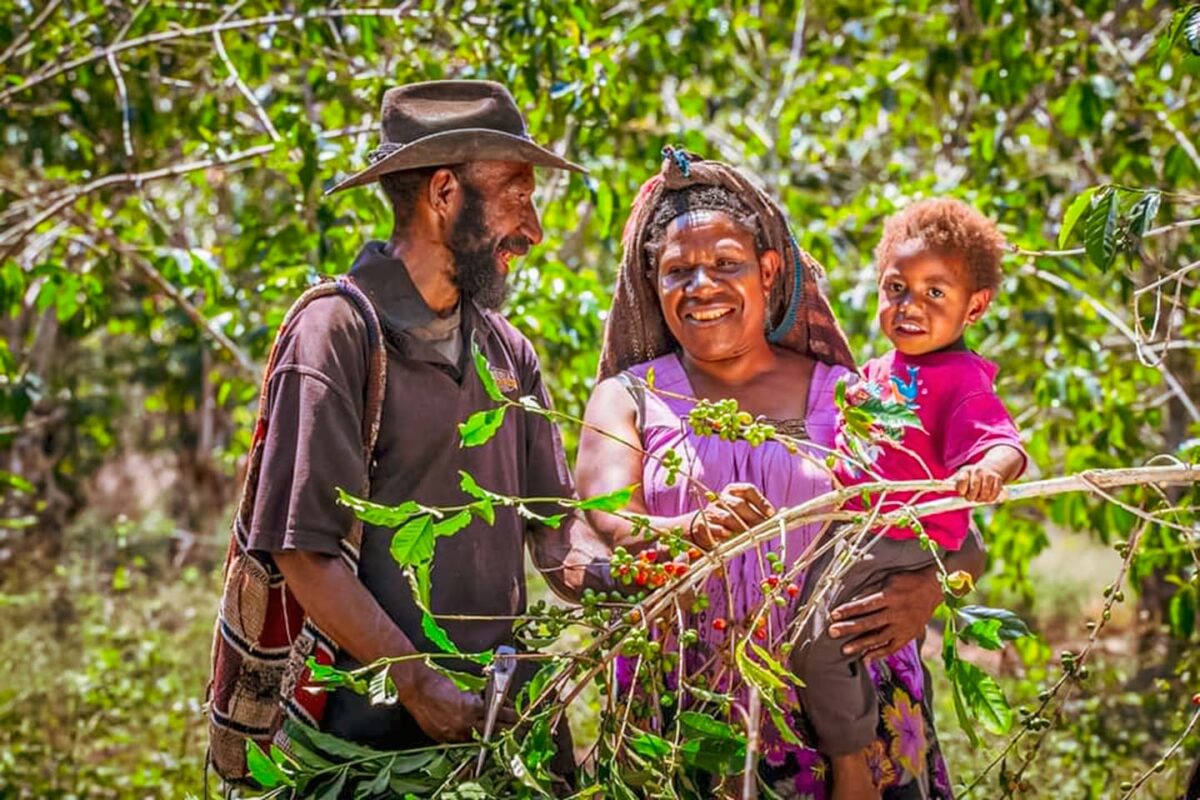
Strength rooted in ‘familial’ bond
For Elijah, coffee has always held a special place in his heart since his childhood. It was his family’s main source of income, and he was able to get an education thanks to coffee.
“As a child, I was always looking forward to the harvest season because I knew I could expect a gift. It was also during one harvest season when my parents bought me my first pair of shoes. I was 11.”
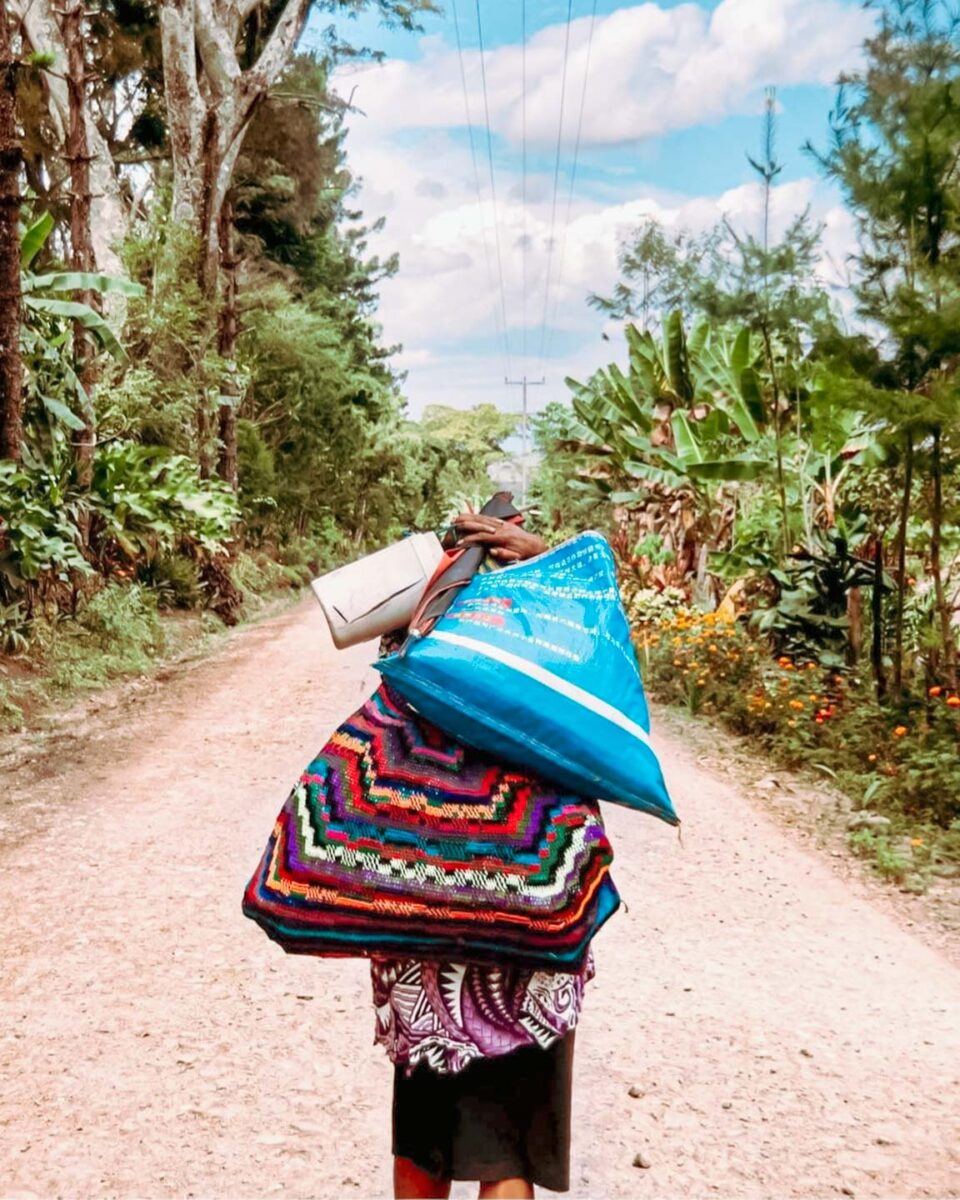
Although coffee gave Elijah fond childhood memories, it was only decades later that he made it his job. Previously, Elijah worked as an independent builder, putting up houses and offices. It wasn’t until around 2015 that he started to seriously consider making a living out of coffee.
In the coffee supply chain, intermediaries wield strong power. Because of that, producers can’t make a sufficient income. To address this issue, Elijah established Alpha Coffee, which handles coffee processing and export, out of desire to connect small-scale farmers directly to the market.
“More than a few farmers in Papua New Guinea have quit coffee production in recent years. There are two main reasons. The first is price. A majority of coffees produced here are commercial-grade. They are being sold for almost nothing. If farmers can make the same amount of money from growing vegetables, it’s no surprise they decide to make the switch because vegetables have a shorter harvesting cycle, and they can get some money more quickly.
The second reason is a labor shortage in the farms. Again, the logic is simple. People think that if they can get the same amount of income, they will be better off working in big cities.”
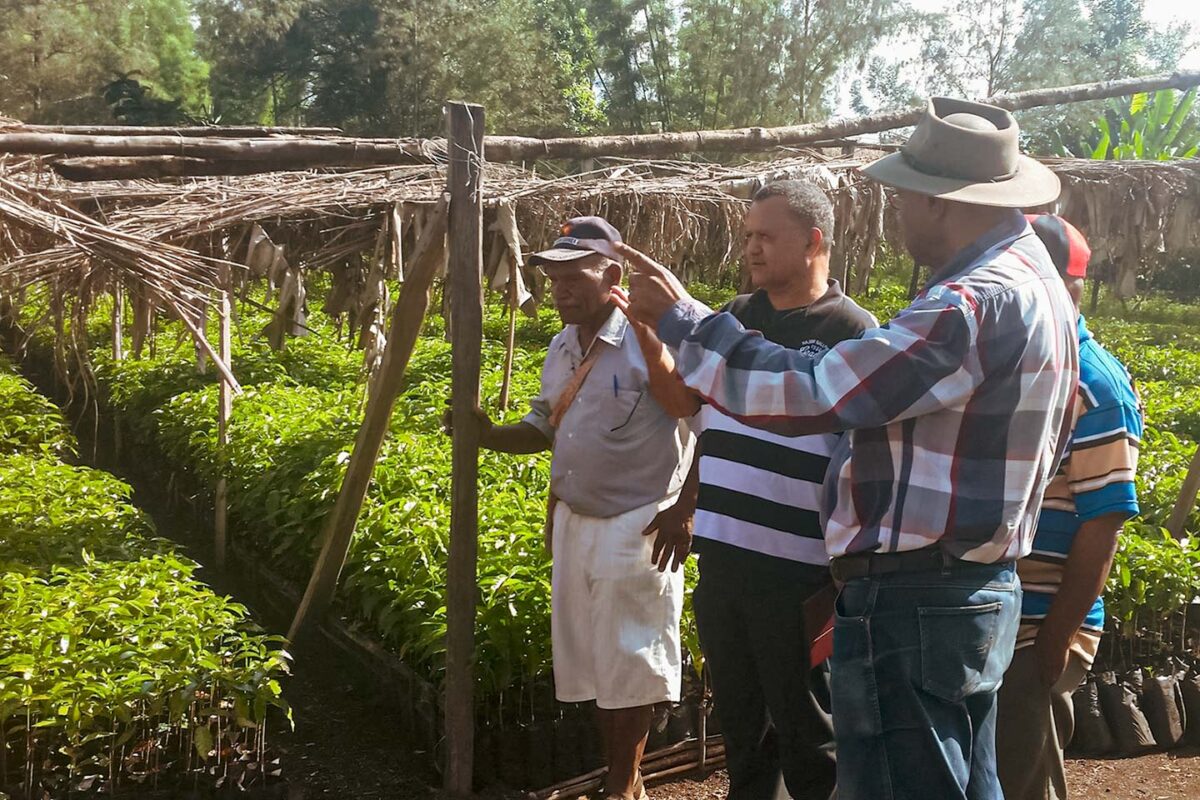
But now specialty coffee is attracting farmers’ attention as a way to bring more stability to their income. When Elija approached coffee farmers with the idea of specialty coffee, around 100 of them came on board, many of them from his tight-knit circle.
“Papua New Guineans may have a different definition of ‘family’ from people in other countries. If someone comes from the same tribe, we recognize them as family, even if we are not related by blood. Hundreds of years ago, our ancestors formed alliances to protect their tribal land in case of a conflict with different tribes. A familial bond was nurtured this way, and it has taken firm roots in our society.”

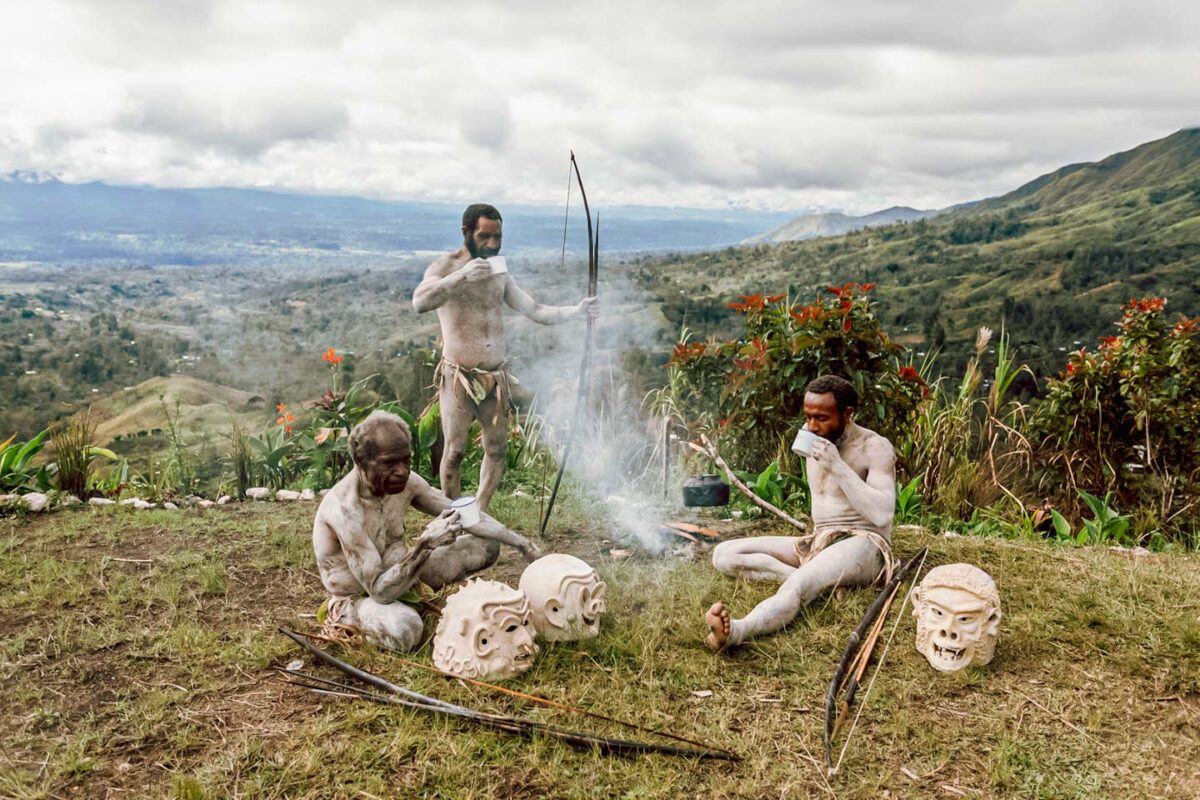
Cultivating spirit of self-support
Papua New Guinea is an archipelago consisting of the New Guinea island and 700 other big and small islets. The country is home to 800 languages and ethnic groups. Among the country’s unique traditions is the wantok system, where people of the same ethnic identity form a network of mutual support.
When someone who is a wantok suffers a loss or is in need of assistance, the other wantoks will rally behind them to offer support. This assistance can take various forms, from cash to bride price to compensation payments, etc. If someone in the same group has physical or intellectual disabilities, the entire group looks after them throughout their lives.
Since the country’s social security system isn’t well-established, people have to build safety nets themselves through this wantok system and look out for each other. But this also means that they have lived self-sufficient lives within their own ethnic group for a long time. In a way, there isn’t much need for state-run support programs or government-led initiatives.
“I have around 10 people whom I can call and ask for help immediately. If my daughter marries someone from a neighboring tribe, that man’s tribe will be our family, too. It only makes sense to take advantage of these familial connections if you live in Papua New Guinea.”
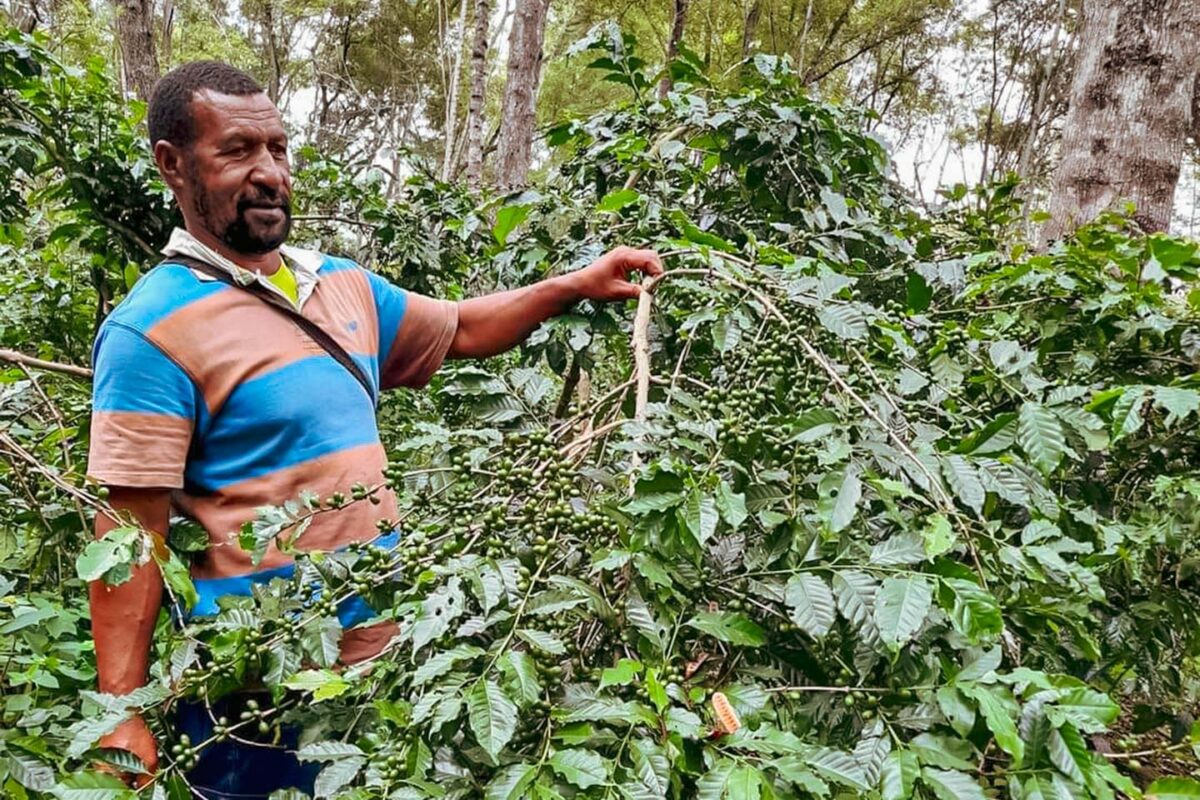
Elijah would have been able to provide for his “family” with the earnings from his former job as a builder. But he isn’t the type to just have their basic needs met and be content with it. As a member of his community and a wantok himself, he set out to further support them, and help them become financially independent.
“Main drivers of Papua New Guinea’s economy are exports of palm oil, cacao, gold and copper and natural gas as well as coffee. But sadly, the general public isn’t benefiting much. The only way to help them is to educate them so that they can become financially independent.
That said, they do have one big advantage. They already own farms and know how to grow and sell coffee. I want to show farmers that there is a bigger world out there, and that if they do things the right way, their effort will be rewarded.”
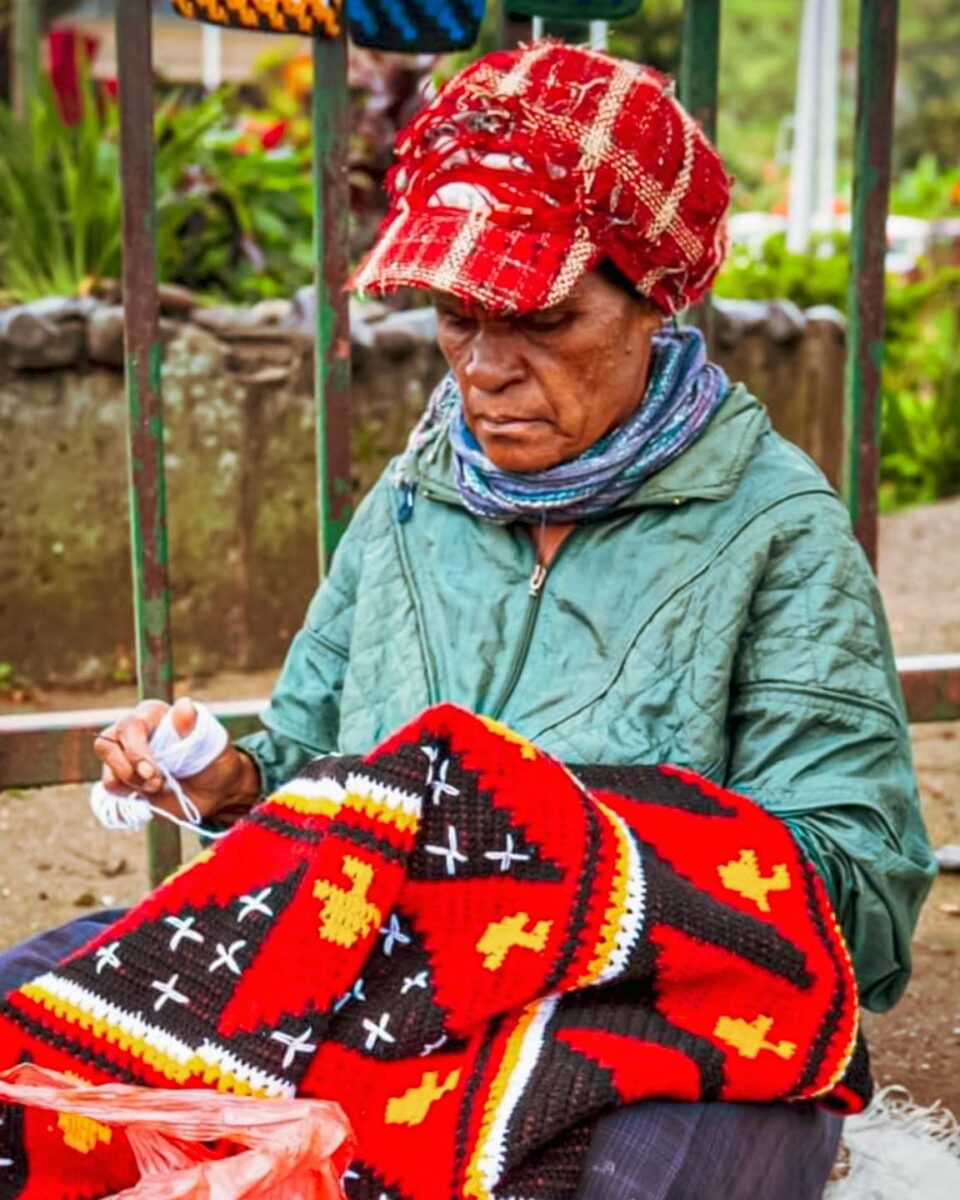
An advanced civilization doesn’t necessarily translate into happiness. Papua New Guinea was once called the closest nation in the world to the Stone Age; here, the use of stone tools lasted well into the 20th century. Even today, roughly 90% of its population subsists on farming, as a means to provide food for themselves and earn a living at the same time.
“People here don’t need to go to a supermarket to buy necessities because it’s fairly common for them to make what they need themselves. They walk 10 kilometers to get to their farms, but don’t see that as hard work or a waste of time. Walking long distances is their daily routine. As long as they have what they need, then they are okay. That’s their mindset.”
It’s been a while since Papua New Guinea introduced a monetary economy. With that change came the need for an income. But people in the country still fondly remember a self-sufficient era. Elijah seeks to challenge what has become a norm and demonstrate that there are other possibilities.
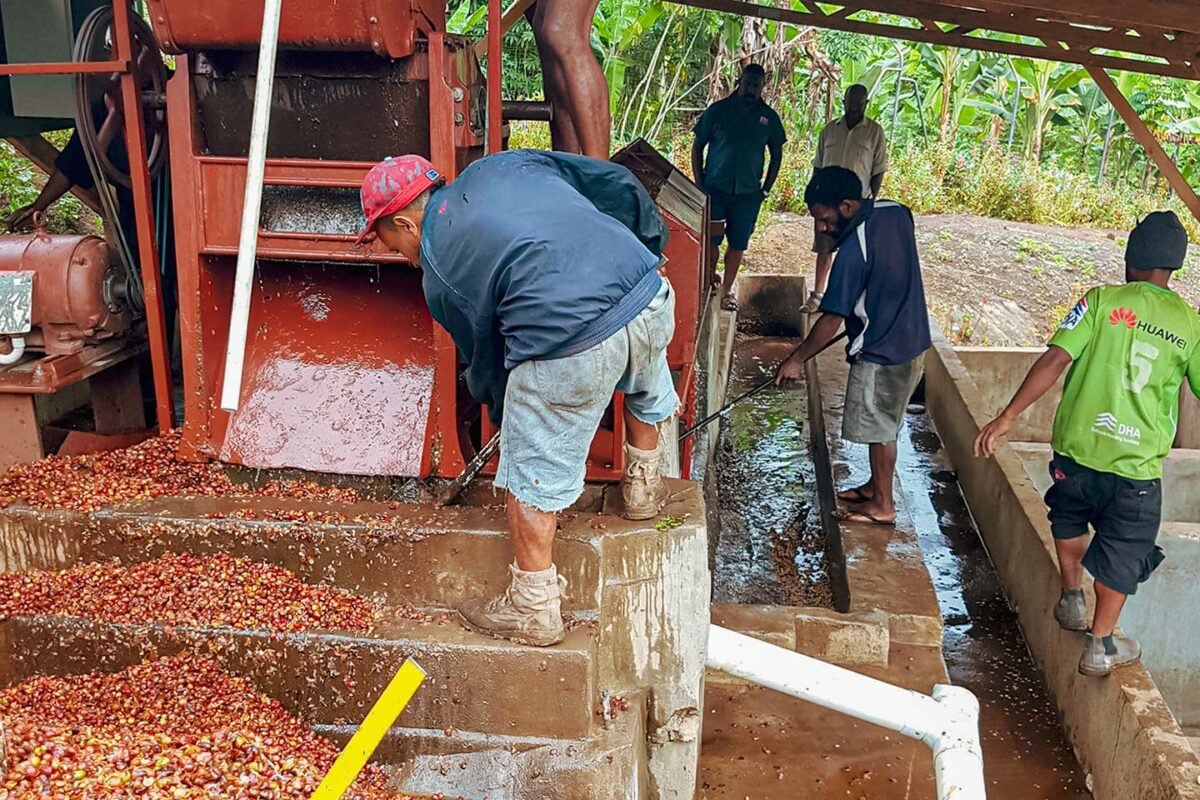
“People in Papua New Guinea have to pay tuition for 9 years of primary education, which starts when you are 6 years old. But many households can’t afford to give their children an education. On top of that, you need money for everything from health care to clothing. Having a little more money can be very helpful in life.
I often tell people to save as much money as possible for when they need it. I do so to cultivate an economic perspective in their minds. My goal, and my wish, is to help people to become financially independent so that they will be able to help themselves.”









